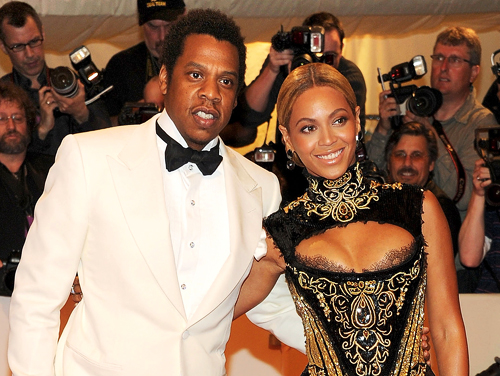Some feminists drive me crazy. Yes, I said it. You’re not supposed to admit things like that but, well, sometimes I just want to wring their necks.
Feminists, leave Beyonce alone!

Some feminists drive me crazy. Yes, I said it. You’re not supposed to admit things like that but, well, sometimes I just want to wring their necks.
Despite being a feminist myself, it feels like I can’t do enough lately to earn that title. It’s like there’s a high-jump bar held just out of reach, and no matter how hard I strain to fling my body over, inevitably it comes crashing down, with me unceremoniously following suit.
What’s the problem? I heard a discussion on the radio the other day that made my blood boil and, as I was driving at the time, my fellow motorists were the unsuspecting targets of a few choice words. But, seriously, people need to learn to just get out of the way.
Let me explain.
Beyonce Knowles’ documentary Life Is But a Dream just came out, offering unprecedented glimpses into both her career and personal life. I happened to watch her interview with Oprah preceding the documentary’s premiere, and while I wouldn’t consider myself a “Bey” fanatic, something I heard made me want to jump to her defense.
In between Oprah’s at-times-absurd fawning over the star—she called Beyonce’s Super Bowl performance “where art meets God” (OK, Oprah)—she asked the singer about her relationship with her husband, rapper Jay-Z. Beyonce replied, “I wouldn’t be the woman I am if I didn’t go home to that man.” The minute she said that, I knew she was going to get it. It was only a matter of time.
Sure enough, a few nights later, I turned on National Public Radio and found myself in the middle of a Tell Me More segment with a panel including, among others, Danielle Belton, editor-at-large of Clutch Magazine, an online feminist publication. The discussion was centered on the same Oprah interview.
According to Belton, Beyonce’s admission pointed to a “lack of introspection [that] causes her not to realize it doesn’t 100 percent jive with her same language about female empowerment.” She went on to say, “part of your team is your incredibly powerful husband and you credit him in many ways with making you the performer and woman you are today…it’s a story of both independence and interdependence.”
First of all, judging someone’s level of introspection is arrogant. Second, last time I checked, interdependence isn’t a bad word; in fact, we sorely need more of it in every sphere of society—from our politicians, global leaders, religious leaders and social activists. It’s kind of what makes the world go round.
Belton’s use of the word, apparently, was meant as an indictment.
That’s what makes me angry. The suggestion that to be a powerful woman you can’t acknowledge that you need someone else is one of the most un-empowering statements I’ve heard in a while. Feminist ideology is meant to free women from societal constraints, not replace them with new, equally confining ones. When we succumb to either/or philosophies, we incapacitate our discourse.
Beyonce represents so much of what women have been fighting for over the last century. Forbes included her in its coveted “World’s 100 Most Powerful Women” list and the singer, producer, actress and businesswoman makes an estimated
$40 million a year. She appears to have achieved a successful balance between career and family, and works alongside Michelle Obama in the fight against childhood obesity. What more can you ask for? At what point will it be enough?
That’s just it. It’s never enough.
They say when someone elicits a strong reaction in you, it’s not so much about them as it is about you. It’s true. Belton’s censure of Beyonce was really a censure of me and many women I know. I don’t think we should have to choose between independence and interdependence. We shouldn’t be thought less of because we acknowledge the roles men have played in shaping who we’ve become. Nobody should. That’s not true feminism.
Instead, as bell hooks says in Feminism Is for Everybody, feminism is about freeing everyone’s minds from the violence of patriarchy, and that is achieved through partnership. She suggests that “without males as allies in struggle the feminist movement will not progress,” and that together we can create a “beloved community…live together, realizing our dreams of freedom and justice, living the truth that we are all ‘created equal.’”
Yes, please.







Thanks for writing this article, I really enjoyed reading it. A couple comments:
-“Feminist ideology is meant to free women from societal constraints, not replace them with new, equally confining ones.” I’m glad you brought this up because I have found that many self identified feminists at Portland State and beyond act as language and thought police to others who might speak in a less educated manner (classism, anyone?), creating a new pseudo-conscious oppression.
Beyonce makes makes $40 million yearly, much of which comes from corporate deals. Because of this, much of the US population is subjected to her presence- her singing, her airbrushed image, and her surely hyper-trained, cosmetically altered body. Now if we have to put up with all this exposure while she’s making all that money, we deserve to also hear analysis of her comments- and to disagree with those comments.
And Beyonce has been subjected to the same white standard of beauty that every black person in America has. She’s had to put up with an unprecedented level of scrutiny that white women don’t have too. So you can just deal with it boo.